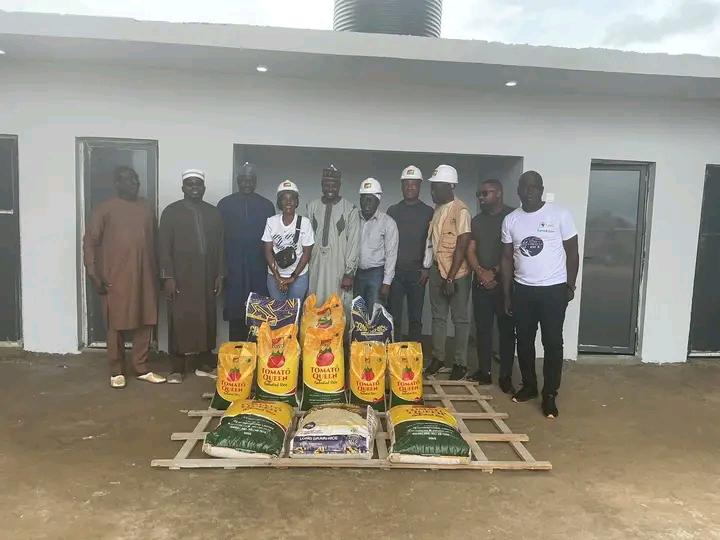Jigawa State Governor Malam Umar Namadi has said the state is on track to produce 50% of Nigeria’s rice needs by 2030, attributing the progress to massive investment in irrigation farming, modern equipment, and expansion of cultivated land.
Namadi stated this on Tuesday evening when he received Liberia’s Deputy Minister of Agriculture, David Akoi, and his delegation at the Government House in Dutse during a courtesy visit.
He explained that Jigawa’s rice production grew from 60,000–70,000 hectares in 2023 to over 200,000 hectares in 2024, with a target of close to 300,000 hectares this year. He added that the state’s success was due to its focus on irrigation farming, which had increased yields and helped combat climate change.
According to him, the government had revamped existing irrigation dams, increasing production by over 4,500 hectares, and procured 300 new tractors, 60 combined harvesters, and 150 planters. He said each of the state’s 30 constituencies now had at least 10 tractors for subsidised hire services to smallholder farmers.
Namadi commended the Liberian delegation for choosing Jigawa for their study tour, describing agriculture as the mainstay of the state’s economy.
Purpose in Nigeria
In his remarks, Akoi said Liberia was in Nigeria, specifically Jigawa, to learn from the state’s success in rice production and value chain development. He noted that Liberia, being a major rice consumer, imports about 70% of its needs, a situation the government was determined to reverse by producing at least 70% of its consumption locally.
He revealed that Liberia’s president had sent him to Nigeria to study the rice value chains and learn from Jigawa’s success story. He recalled Liberia’s history of rice riots, which led to the overthrow of President William R. Tolbert in 1979, stressing the importance of rice in the country’s politics and economy.
“By partnering with Jigawa, Liberia hopes to transform its rice value chain and increase domestic production. This collaboration could have a positive impact on Liberia’s economy and food security,” he said.
Liberia delegations in Nigeria
The Liberian team is in Nigeria for a week-long agricultural exchange programme running from August 10–16, sponsored by Concern Worldwide under the Irish Aid-funded IFANSI project, implemented in Grand Bassa and Rivercess counties.
The delegation, led by the Community of Hope Agriculture Project (CHAP), includes CHAP representatives Robert Bimba and Samuel Barcoleh; Deputy Minister Akoi; Mohammed Kamara, CEO of AAIC; Kebbah, President of the National Rice Federation of Liberia (NRFL); Concern Worldwide’s Dr. Umar Mohammed; and Williams Dennis.
On Monday, the team toured Silvex International’s 310-ton rice milling facility in Abuja, where CEO Abubakar Usman Adam and his team shared the successes and challenges of large-scale rice processing. Silvex International, which owns four major rice mills in Nigeria, has been allocated 10,000 hectares for rice cultivation to contribute to the country’s annual consumption of eight million tons.
According to the delegates, the exchange will focus on best practices in the System of Rice Intensification (SRI), private sector–led initiatives, and outgrower/in-grower models, with the goal of moving Liberia’s agricultural projects toward agri-commercialisation for long-term sustainability.









